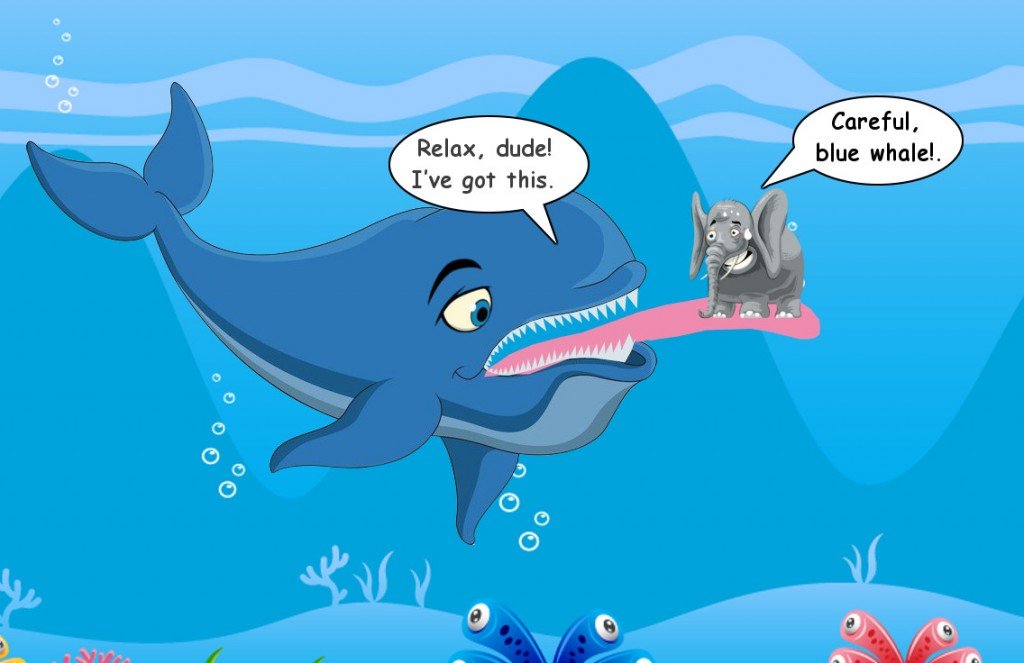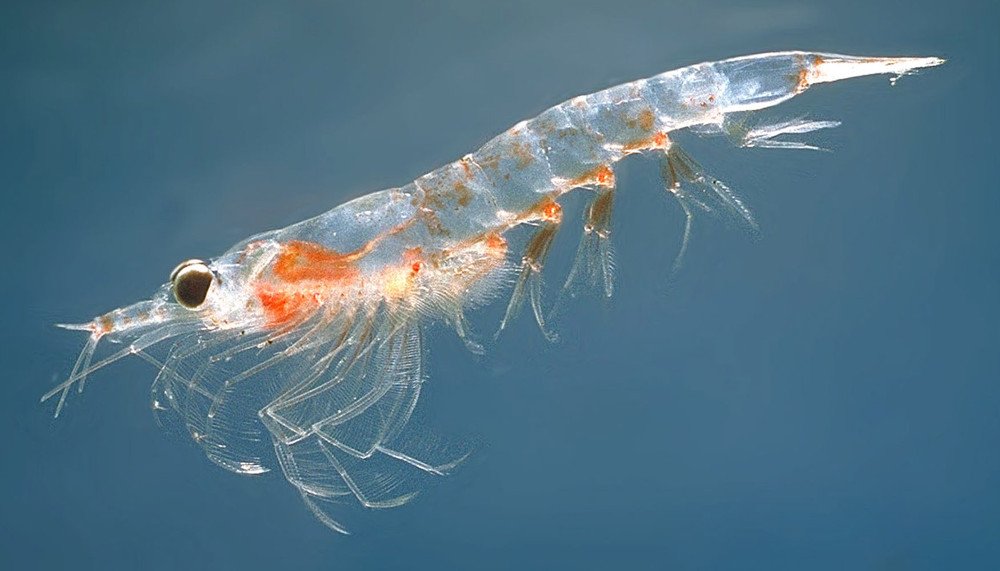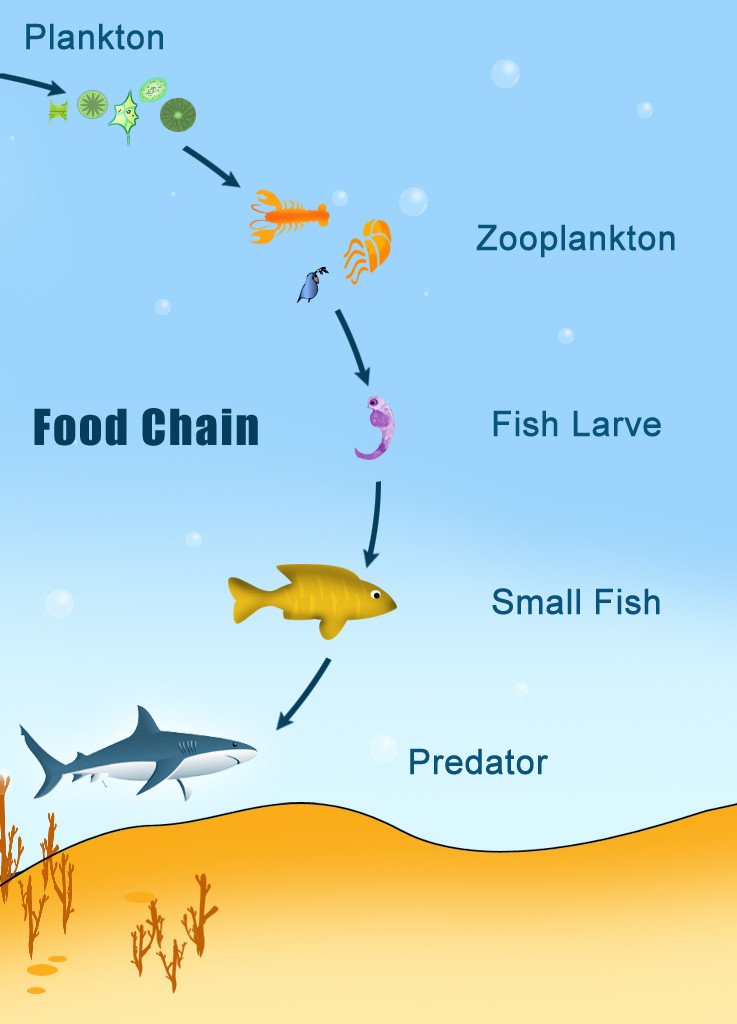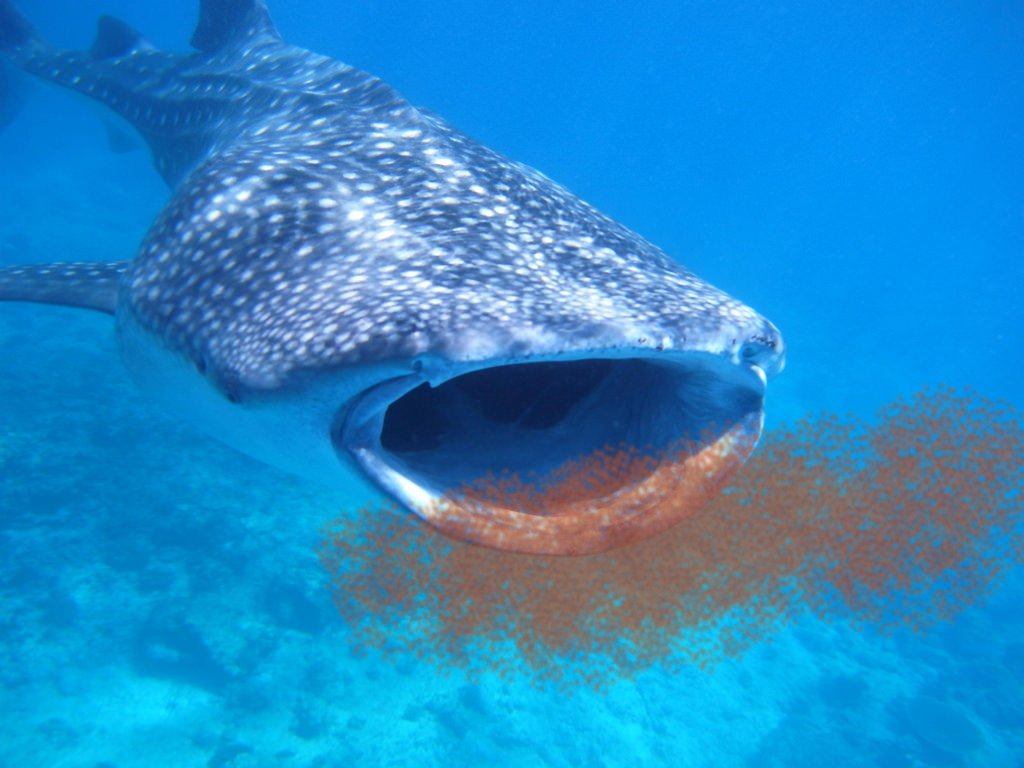Table of Contents (click to expand)
Whales primarily eat krill, which are tiny shrimp-like crustaceans. They are able to eat so many of them because they exist in such large numbers in the ocean.
The name ‘whale’ almost immediately conjures up the image of a mammoth sea creature splashing in the waters of the ocean. To other people, who are more like me, the same image would be subtitled “whale: the largest mammal on Earth.”
Indeed, whales are some of the largest creatures on the planet. Blue whales, in fact, are the largest mammals on Earth. It can grow to be longer than 100 feet and weigh upwards of 200 tons! Its heart can be as big as an automobile and its tongue alone can weigh as much as an elephant. Think about that for a moment!

One might wonder what in the world must such huge creatures eat every day to sustain themselves! One might logically guess that blue whales must eat big fish and other large sea creatures; it does make sense, after all, to think that only big aquatic creatures could adequately quench the appetite of the biggest mammal on Earth.
If you’ve ever considered this subject, but don’t know the facts, you may be surprised to know that most whales primarily feed on krill – a family of extremely tiny shrimp-like crustaceans! So, despite how big whales themselves are, their diet consists of incredibly small aquatic creatures. The question is, how does that work? How do whales, some of the biggest creatures on the planet, survive by feeding on krill, some of the smallest?
Krill
Krill are found in every ocean of the world and are small crustaceans that exist near the bottom of the food chain. They belong to the large arthropod subphylum, Crustacea. The most popular group of crustaceans (the class Malacostraca) includes the superorder Eucarida, which further comprises three orders: Decapoda (shrimp, lobsters, crabs, prawns etc.), the planktonic Amphionidacea and Euphausiacea (krill).

Also Read: Can A Whale Swallow You Whole?
How Do Whales Survive By Eating Krill?
First off, while it’s true that whales eat krill, that’s not the only thing they eat. Furthermore, whales actually gorge on tons of krill every day in order to satisfy their hunger and cater to their nutritional requirements. Allow me to elaborate on that second point…
You see, practically all the food in the ocean originally comes from plants; while plants only need water and sunlight to survive, animals have to actually eat stuff. Thus, plants grow using water and sunlight, and then certain animals eat those plants. Subsequently, certain other animals eat the animals that eat plants, and then certain animals eat those animals. In this way, the cycle goes on and on.

Note that not all food that is eaten gets turned into new food that another animal can eat. Some part of the eaten food is used up while providing energy to move around and some part is just excreted as waste. Therefore, if an animal eats, say, 100 grams of food, it may only produce 10 grams of food that another animal could eat. What this means is that if you’re a big animal, then you have to eat a LOT of food. It also means that you have more food to eat if you eat plants, rather than surviving on a diet of other animals.

Finally, it means that you have more food if you eat an animal that eats plants, rather than an animal that eats other animals.
Now, let’s see how this reasoning applies to the whale-and-krill example:
Krill eat plants, specifically algae (although algae are not highly differentiated in the way that plants are, so technically, they are not exactly ‘plants’), and the thing about algae is that it grows unbelievably fast. Therefore, krill have it pretty easy – they eat as much as they want and make tons of babies, as there is no dearth of food. This is also quite favorable for whales, because whales often find incredibly huge numbers of krill huddled up in swarms.
As big as whales are, when they see a giant swarm of food floating in the water, all they have to do is swim through the swarm with their mouths open and get as many krill into their mouth as possible in a single pass.

This is how whales can easily eat a few tons of krill every day. In a nutshell, whales, some of the largest creatures on the planet, can survive by eating krill because they eat so many of them. To put this in perspective, consider a single grain of rice, which is positively puny in comparison to a human. Still, the latter can survive by eating thousands of rice grains when they’re served in a bowl!
Also Read: The Story Of Filter Feeding: How Did Whales Get Brush-Like Teeth?
How well do you understand the article above!

References (click to expand)
- Stanford researchers reveal details about the unique feeding .... Stanford University
- ASK Archive 2001: Do whales eat plankton or krill?? - whale.wheelock.edu
- How do whales eat? Summary Objectives Materials (one per .... The University of Hawaiʻi at Hilo
- Whales swallow a bus-full of krill. The Australian Broadcasting Corporation
- Meals on the Go: The Physics of Whales' Eating Habits : SLU. Saint Louis University
